AI To Create Content: Why It's Bad (and What You Should Do Instead)

By ELENA VIVALDO
AI content creation and Google E-E-A-T. How to write quality, relevant content that readers actually want to read.
Hello World.
…World.
It feels a bit scary at the moment, doesn’t it? We’re experiencing a radical change in society.
Where over-reliance on technology lets people forget basic skills.
Where people don’t know how to talk to one another anymore.
And where the richer are getting richer and the poorer are getting poorer.
Can you feel it?
And it’s not just since the global lockdown (although that didn’t help). It’s been in the works for ages. Think social media, online shopping, online banking, etc.
These changes are not all bad. In many ways, it has made life easier. And as a digital copywriter, I do what I do because of the way the world works.
But suddenly, it feels like we’re running at full speed on the treadmill and don’t know how to get off.
And when we’re heading towards a future with driverless cars and AI to make medical or judiciary decisions, shouldn’t we stop and wonder about the implications? Morally and ethically?
I’m not a philosopher and I don’t understand how the algorithms behind these “great” inventions work, but I’ve got questions.
The hype of AI to create content
If we focus on AI writing tools like ChatGPT, individuals, brands, and businesses can now churn out blog posts, video scripts, website copy, social media posts, videos and whatnot within minutes, seconds even.
And for small business owners on a tight budget, using AI to create content is a no-brainer.
With the likes of ChatGPT, you can…
- Create marketing copy and content around the clock.
- Create multiple versions of the same copy to choose from.
- Publish more content to help you scale your business.
- Count on grammatically correct work.
- Get content ideas.
Plus, most AI writing tools are free saving you a lot of money on hiring content writers and copywriters.
What once took weeks of careful writing research, editing and fact-checking now takes only a few AI prompts – making life easier.
Right?
RIGHT?
Is AI content creation all it’s cracked up to be?
If something sounds too good to be true, it probably is.
And since ChatGPT launched in November 2022, people are wising up to the dangers of using AI for their content marketing. Mainly….
- Lack of personalisation
The biggest problem with using AI to create content is that it lacks personalisation. It cannot generate personalised responses for every user. Instead, it generates bland, generic answers that don’t change beyond the surface level.
And if you’re writing for a niche industry, you can’t make do with generic content because you wouldn’t be providing any value to your readers.
- Robotic content
AI writing content tools often sound too robotic and, as a reader, you want to connect with a human – not a robot.
Admittedly, as AI technology is getting more advanced, you can’t always tell if a text is AI-generated. But some tell-tell signs that it was written by a bot are monotonous sentences that are too generic and lack emotion.
- The content looks the same
The way AI writing software works is that it recycles the data that is available online, so it can only regurgitate what’s already been published.
And if everyone uses AI for their content marketing, the content is all going to look the same. And how are you going to stand out from your competitors?
- Incorrect information
For whatever reason, AI writing tools can also spew out incorrect or misleading information and blatant and made-up facts. These are also known as AI hallucinations.
These hallucinations happen more often than you realise, making AI unreliable and a danger to your image and reputation.
- Over-reliance
Over-dependence on AI for content creation not only makes you second-guess your thoughts, ideas and writing skills, but it also dangerously alienates you from your work.
Letting AI create your content can be very tempting. Hell, it can even inject SEO keywords into the text.
But the truth is that it (still) lacks that personal touch – a human touch – that customers often look for. Be it in a blog post, product description, resume, website copy, etc. And if you run a business, you can’t rely on a robot to inject personality into your copy to make stand out from the competition.
- Poor SEO-optimisation
On paper, AI can also produce SEO content. But anyone who’s worked in SEO and tried to optimise their content knows that SEO is more than stringing a few keywords together.
SEO is a long-term strategy that involves analysing trends, competitors and user intent.
AI is not bad for your SEO, but it can’t create content that aligns with your SEO goals and strategy while targeting your target audience.
- Legal & ethical concerns
The use of AI in content creation raises serious legal and ethical concerns. AI technology is still so new that no one can predict its future implications (good and bad).
Important points of discussion involve copyright issues, plagiarism and loss of jobs.
Is it bad to use AI to write content?
In the long run, research shows that people prefer human-generated content over AI. So you’d only be wasting time by using AI to create content (see Neil Patel’s video above).
So, relying solely on AI for your content marketing is absurd.
Call me old-fashioned, but whether I’m shopping online or contacting customer support, I still like to know that I’m dealing with a real person – not a robot.
But it’s more than that.
If you have an online business and you really want to carve a corner for yourself and attract paying clients it’s not enough to turn to AI tools for help – you need to add E-E-A-T to your content.
What is E-E-A-T and how to use it for your content?
E-E-A-T is an acronym created by Google and it stands for: Experience, Expertise, Authoritativeness, and Trustworthiness.
Google loves E-E-A-T.
Because they’re signals for quality, useful content that users are searching for.
Just to be clear, good SEO is not enough to rank at the top of search engines – you also need to write E-E-A-T content.
E-E-A-T in a nutshell
Experience
First-hand experience is an important sign of genuine, quality content.
For example, if you’re looking for a product review, you’ll look for reviews from people who have tried and tested a product. Be it for a new tech gadget, hotel, or an online course.
Expertise
If you’re an expert in your industry, you need to show that you have the qualifications, credentials and inside knowledge to offer value to your readership. You can create content that your users are searching for to show your expertise.
How do you demonstrate that you’re an expert in your industry?
For example, lawyers can display their degrees and create content around the areas of the law they specialise in. Digital marketers can show their expertise by sharing their portfolios and client reviews. And arts and crafts sellers can create video tutorials as proof of their technical skills.
Authoritativeness
While Experience and expertise are under your control, your content becomes an authority when people start talking about it.
Ideally, you want other websites to link to your content. The more backlinks you receive from quality third-party websites within your niche, the more authoritativeness your website will appear in the eyes of Google. (Plus, it’s also good for your SEO).
Trustworthiness
To perform well under E-E-A-T, your website also needs to be trustworthy.
How do you do that?
Basic things include making sure your content is accurate, up-to-date and linking to reputable, authoritative websites in your niche.
But you also need to consider technical aspects like website load time. Other things Google takes into consideration are:
- Privacy policy
- Secure website (i.e., have HTTPS in your URL)
- If you own an eCommerce store, you need to display a clear store address and return policy.
How to implement E-E-A-T
As Neil Patel’s E-E-A-T blog post outlines, you can apply Experience, Expertise, Authoritativeness and Trustworthiness by:
- Creating an About Us page: let your website visitors know who you are.
- Collaborating with experts in your industry: guest blog posts and podcasts are good strategies.
- Updating your content: keep it relevant with today’s trends and your marketing efforts.
Conclusion
Good or bad, anyone can use AI to create content.
But the issue is when marketers, businesses and people blindly trust it to take care of their content and SEO. And it’s not just from an ethical standpoint – it just can’t produce original, personalised content that makes your stand out from a sea of sameness.
Instead, by creating people-first content and following the E-E-A-T guidelines, you have a greater chance of creating a strong, positive online presence with a high Google ranking.
Want to connect with your readers on a human level? Contact me for quality, reliable content for websites, blogs, social media and online stores.
About the author
Hi! I'm Elena Vivaldo. I'm a freelance SEO copywriter, business writer and PADI scuba diving instructor.
Yes, I wear many hats, but it's what makes me a resourceful writer for creative and dynamic clients in any industry. In fact, I've been helping small and big companies connect with their target audience for over four years.
How I work? Well, I'm organised and easy to talk to, but I also like to keep things real. So if you're looking for a word-spitting robot that lacks emotion OR personality, you're in the wrong place. I'm all about quality over quantity.
Through Vivaldo Copywriting, I've attracted readers from over 140 countries and have worked with clients from 35+ countries.




